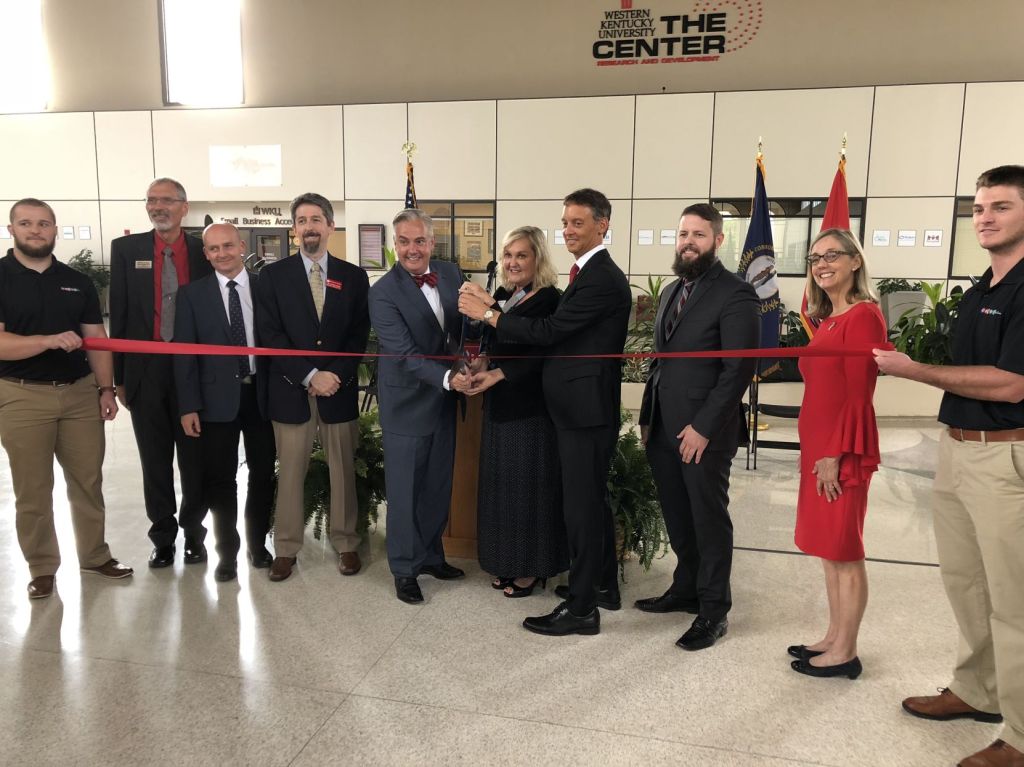WKU opens Center for Applied Science in Health and Aging
Published 8:00 am Wednesday, September 12, 2018

- WKU celebrates the opening Tuesday of its Center for Applied Science in Health and Aging with a ribbon-cutting ceremony.
By 2035, there will be more people age 65 and older than children in the United States.
Western Kentucky University is capitalizing on this demographic shift with its new Center for Applied Science in Health and Aging that officially opened Tuesday. The research facility is in WKU’s Center for Research and Development on Nashville Road.
Speaking during a ribbon-cutting ceremony, WKU President Timothy Caboni described the center as an opportunity for students “to go out into the field, to have practical experiences and connect what they’re learning there with what’s going on in the real world.
“What we create here at WKU is not just knowledge but useable knowledge,” he added.
The Center for Applied Science in Health and Aging is the second center for applied research created by WKU’s College of Health and Human Services. It opened its Center for Environmental and Workplace Health in November 2017, according to a news release.
Associate professor Jason Crandall of WKU’s School of Kinesiology, Recreation and Sport will direct the center.
Speaking during the ceremony, he described the center’s goal “to make WKU the regional leader for aging science.”
“As we confront major shifts in aging demographics in the decades ahead, we hope that CASHA will be at the forefront of the interdisciplinary approach needed to tackle these challenges,” Crandall said.
Matthew Shake, associate professor of psychological sciences and one of the center’s founders, said it’s been designed to be a “student-centered applied research facility.”
“One of the key objectives of the center is to get students involved in research outside of the classroom,” he said.
Shake said that includes opportunities to work with nursing homes, assisted living facilities and businesses that serve older adults.
“That’s one of the key objectives … is to connect our students to not just research opportunities, but also opportunities that might provide them some skills for getting a job after they graduate,” Shake said.
Community engagement is a key part of that.
Shake said the center is currently using students working in nursing homes and independent living facilities across Kentucky and Tennessee to study WKU’s Bingocize program. The program blends exercise with bingo for improvements in physical and cognitive function in older adults.
Jean Neils-Strunjas, head of WKU’s Department of Communication Sciences and Disorders, is starting a separate project focused on dementia prevention and awareness. As a founder of the center, she’s supervising graduate students who will lead the 10-week program called Let’s Talk About Memory.
The program will test participates for improvements in thinking and memory. Beginning Oct. 2, sessions will take place at 6 p.m. Tuesdays at the Center for Research and Development at 2413 Nashville Road in Suite 123.
Neils-Strunjas said the program is open to Bowling Green residents age 55 and older. Interested participants can call Neils-Strunjas at 270-745-8998 to sign up.
With a rapidly aging population, Shake said there’s never been a better time to open the center.
“In less than 20 years, there will be more older adults than children,” he said. “So there’s enormous potential not just for research but for student involvement or business relationships at the university.”




